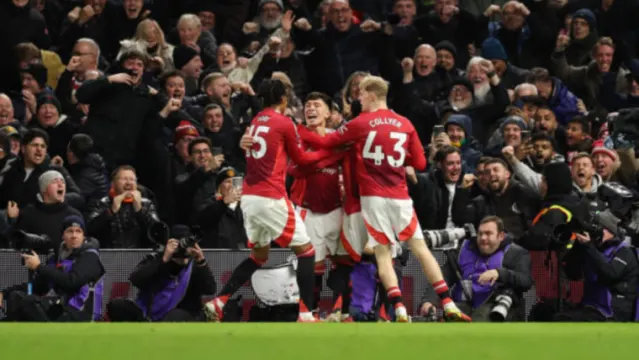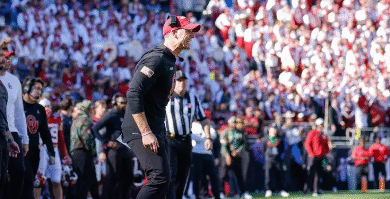
Football has seen its fair share of controversial refereeing decisions, but the clash between FCSB and Manchester United may have taken things to an entirely new level. From dubious calls to questionable VAR interventions (or lack thereof), the officials appeared to play a crucial role in shaping the outcome of this match. While some may argue that refereeing errors are part of the game, what happened on this particular night raises serious concerns about the integrity of officiating in European football.
A One-Sided Whistle?
From the opening minutes, it was clear that the referee’s decisions were tilting in favor of one side. Manchester United players were repeatedly pulled up for minor infractions, while FCSB’s aggressive challenges went unpunished. In one instance, a blatant foul on United’s winger inside the box was waved away without a second thought, leaving even the most neutral fans in disbelief.
To make matters worse, FCSB’s physical approach seemed to be encouraged by the leniency of the referee. Multiple reckless challenges that could have easily warranted yellow or even red cards were met with just a warning. On the other hand, United players received bookings for seemingly soft fouls, disrupting their rhythm and forcing them to play more cautiously.
VAR: The Silent Spectator
The introduction of VAR was meant to eliminate controversial decisions, yet in this match, it seemed to be conspicuously absent when it mattered most. A clear offside goal for FCSB somehow stood, despite replays showing the attacker was marginally ahead of the last defender. Meanwhile, a potential penalty for United—where a defender appeared to handle the ball inside the box—was dismissed without any VAR review.
This selective use of technology has been a growing concern in modern football. Why does VAR intervene in some cases but not in others? Was there an agenda to ensure FCSB had the advantage, or was it just gross incompetence from the officials? Either way, the inconsistencies in how the system was used (or ignored) cannot be overlooked.
The Bigger Picture: Is UEFA Protecting Certain Clubs?
This match was not the first time fans have accused UEFA of favoritism when it comes to officiating. Whether it’s smaller clubs getting favorable treatment against European giants or certain teams benefiting from controversial decisions in crucial matches, the governing body has been under scrutiny for years.
Could there be financial or political motivations behind such decisions? FCSB, as one of Romania’s most storied clubs, certainly brings attention to Eastern European football. A victory over Manchester United would elevate the league’s reputation and potentially increase commercial interest in the region. On the other hand, United is no stranger to being on both ends of suspicious refereeing decisions in European competitions.
Final Thoughts: Football’s Integrity at Risk
The FCSB vs. Manchester United match is yet another example of how poor officiating (whether intentional or not) can alter the outcome of a game. If football authorities continue to allow such controversial decisions without accountability, fans will begin to question the legitimacy of the sport itself.
Refereeing mistakes happen, but when a series of decisions all seem to benefit one team over another, it’s hard to ignore the possibility of manipulation. Whether it was a case of bias, external influence, or simple incompetence, one thing is clear—this match has left a sour taste in the mouths of Manchester United fans and neutral observers alike.
What do you think? Was this match a blatant example of refereeing bias, or just another case of human error in football?









